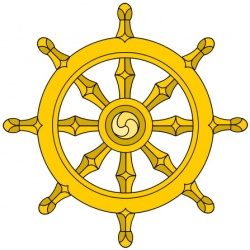Pancha tanmatra
Pancha Tanmantra (sanskrit for five elements) is a traditional Chinese form based on the five phase theory of Chinese philosophy and Buddhist psychology.
This form originates from the Buddhist temple Pemuda Vihara Vimala Dharma in Bandung, Java, where it was taught as an aid to health and meditation. We teach it as a non-combative art.
The system includes a series of 12 movements which directly act upon the body’s meridians resulting in emotional and physical healing.
The exercises are performed soft to tonify and hard to dispel energetic and emotional blockages. At the end of the beginners training students learn the physical meditative form called Mandala.
Training includes Qi Gong, meditation and an effective approach to dealing with the mind.
Pancha Tanmantra is an ancient healing martial art originating from the Shaolin Kung Fu system.
Pancha Tanmantra is taught as an aid to health and meditation as it was taught in it's original form.
It is a non combat form of martial art, similar to T'ai Chi] but including more dynamic aspects as well.
The form as it is taught today originated in Java, Indonesia at the Pemuda Vihara Vimala Dharma Temple.
During a Pancha session you will be introduced to Five Elements.
You will be shown movements which relate to each element.
Through these movements you will feel what it is like to embody and express the nature of Fire, Water, Metal, Wood and Earth.
Movements are done softly to tonify and hard to expel energetic and emotional blockages.
Pancha is suitable for people of any level of fitness but is unsuitable of you have recently sustained injury or have had an acute trauma. Better to let yourself rest and heal first.
